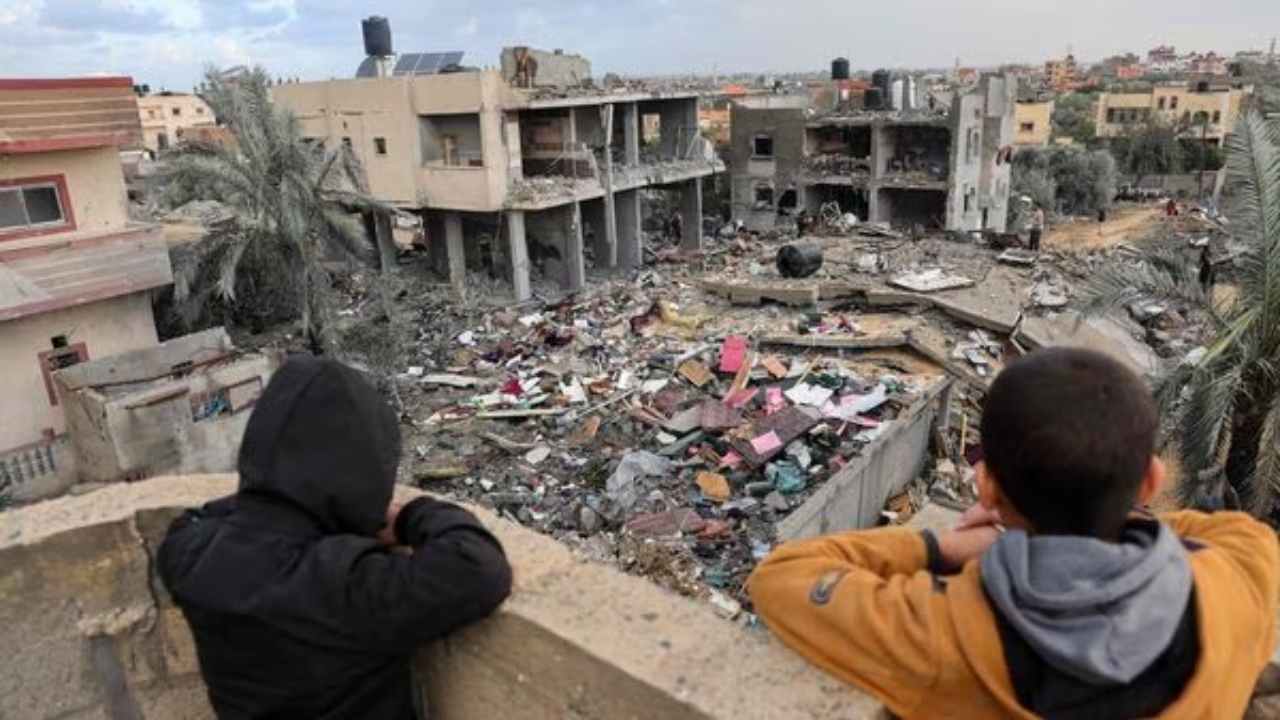On the fateful day of 23 November in 1963, all the students of our college were called to the assembly hall. The Principal solemnly told us that US President John F. Kennedy—his faded B/W picture pinned on the black board—had been assassinated, and asked us to observe a minute’s silence.
The college was closed as a mark of respect to the American leader, whom neither the principal nor the students had ever met. There was no 24×7 TV, no internet, no social networks like X, WhatsApp, Instagram, still we felt connected as human beings and shared the pain and anguish of the assassination of a young American leader thousands of miles away.
Today, the world is interconnected in hundreds of ways thanks to the unprecedented revolution by means of communication and through the explosion of social networks. So, what happens at one place is almost instantaneously splashed all over the world through various platforms. It’s impossible to hide military operations and their outcome and reactions against them.
Intriguingly, often, the reaction of the States and the people at large are miles apart even when they are witnessing the same happening. Hamas’ attack and killing of over 1,200 innocent Israelis and taking 220 hostages on 7 October 2023 was a heinous crime; Israel has a legitimate right to punish the perpetrators and get her hostages released. But does this give Israel the licence to kill thousands of innocent Palestinians, half of them women and children in Gaza, reduce towns, buildings, hospitals and camps to rubble and force the survivors to run from place to place, deprive them of food and water, medicines?
According to UNSG Secretary General Antonio Guterres, “Gaza is becoming a graveyard for children.” The WHO DG has said that “Gaza has become a death zone. much of the territory has been destroyed, more than 29,000 people are dead, and many more are missing, presumed dead…” For the Israeli government, the Hamas are animals. But what description would they prefer for themselves having killed over 29,000 Palestinians and caused catastrophic humanitarian crises?
In dozens of world capitals, hundreds of protesters are demanding an immediate ceasefire to save human lives in Gaza. Even in Israel, relatives of the hostages are openly urging Netanyahu to stop bombing and killing people in Gaza. Apparently, one day’s delay in ceasefire means the loss of 500 more lives.
But Bibi relentlessly continues his pursuit of obliterating Hamas, unconcerned about Palestinian sufferings and deaths. The United States is the only country that can stop Israel from its mindless killing of Palestinians, but it won’t for fear of losing the support of the Israeli lobby in the coming Presidential elections. How hollow sound US sermons about human rights when it votes against a UN resolution asking for ceasefire, fully aware that its veto means the loss of more Palestinian lives.
When technologically the world is so interconnected today, why are some leaders of advanced nations emotionally so unmoved by the pain and sufferings of Palestinians? What makes them heartless in the 21st century? By killing innocent Palestinians, Netanhyahu is unwittingly giving birth to ten times more enemies for Israel’s future generations.
An eight-year-old Palestinian boy, who has seen his entire family wiped out by Israeli bombs before his eyes but somehow survived, might pick the up gun to take revenge when he turns 14. There is no long term solution except for the implementation of the Oslo accords by Israel and timebound, concerted efforts by Israel, Palestinians and Arab leaders to push for a two-state solution, provided the US acts as an honest broker.
Surendra Kumar is a retired Indian ambassador.

